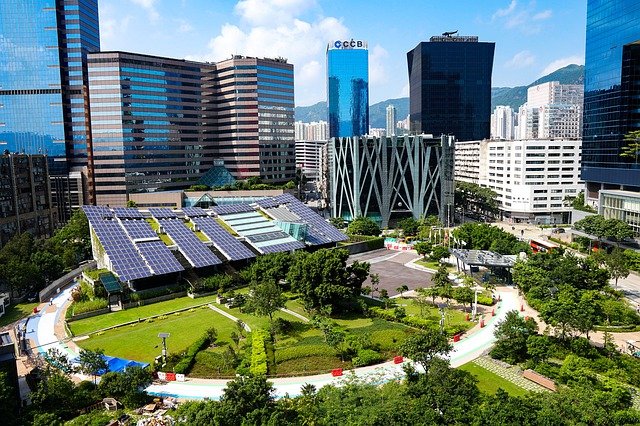As the third of four all-staff talks we held in the run-up to the COP26 Summit in November 2021, this blog includes a presentation by Professor Kathy Pain (Real Estate and Planning) about sustainability in future cities and the critical role of joined-up planning. Then Energy and Sustainability Director Dan Fernbank explains what net zero carbon is and the University’s ambitious plan to achieve this by 2030.

There is a global urban challenge in terms of the climate emergency, because we’re living now with a twenty-first century urban demographic. Migration to the cities increased throughout the twentieth century and urbanisation is now planetary. As the UN has pointed out, the battle for sustainable development will be won or it will be lost in cities. The city nexus is where the economy is based: 54% of the global population lived in cities by 2017, producing 80% of global economic output, about 70% of energy consumption, and about 75% energy-related greenhouse gas emissions.
Even so there’s a difference between how climate change is discussed in the scientific literature, in news, briefings and so on and international conferences and the reality of the importance that cities have in the global networked society. We need to understand cities as socially functioning entities with important multi-scale interactions. Essentially, increases in urban density lead to decreases in direct per capita carbon emissions, if we look across vehicles and buildings. But cities also need to be planned in a way which is sympathetic to people and the way they use cities and travel between them, as this also contributes to emissions. As individual citizens, as policymakers, investors and decision-makers who are creating cities, we need to work together in order to create change and the sustainable cities of the future.
The University has set itself an ambition to achieve net zero carbon emissions by 2030. What this means is that we have committed to reducing our carbon emissions as much as we can. Once we have done that we will need to improve natural carbon capture to make sure that we remove as much carbon dioxide from the atmosphere as we are emitting in the first place.
Our target of 2030 is one of the most ambitious targets set by any UK university and comes as a result of the staff consultation on the University strategy and feedback from the University Executive Board. It’s a clear sign that as well as being world-leading in climate science, there a strong collective feeling that we want to be authentic and ambitious in our sustainability leadership and actions.
Dan answers the questions raised in the session in an article on the Sustainability Services blog.
